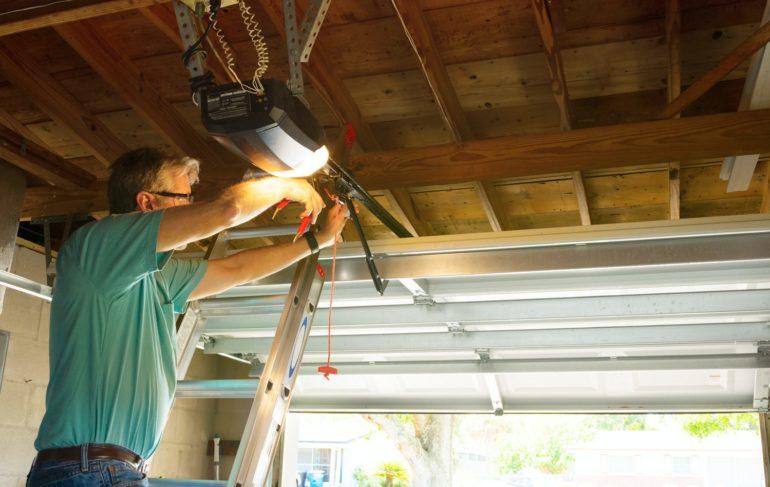Having a neighbor’s garage door open on your own can be a frustrating and inconvenient experience. If you have a LiftMaster garage door opener, you may be wondering why this interference is happening and how to address it. In this article, we will explore the common causes of neighbor garage door opener interference with LiftMaster openers and discuss potential solutions to resolve this issue.

Understanding LiftMaster Interference Issues:
LiftMaster is a popular brand of garage door openers known for their reliability and security features. However, interference between neighboring garage door openers can occur due to a variety of reasons, causing unexpected door openings or closings.
Causes of Neighbor Garage Door Opener Interference:
Shared Frequency: Garage door openers, including LiftMaster models, operate on specific radio frequencies to communicate with their respective remotes. In some cases, neighboring garage door openers may share the same frequency, leading to signal interference. This interference can result in the unintended activation of the wrong garage door opener.
Proximity and Range: The proximity and range of garage door openers can also contribute to interference issues. If neighboring homes are close together or located within range of each other’s garage door opener signals, it can cause unintended activation. Factors such as the strength of the opener’s signal and the sensitivity of the receiver can impact the likelihood of interference.
Radio Frequency Interference (RFI): Other electronic devices or appliances within close proximity to the garage door opener can emit radio frequency interference (RFI). This interference can disrupt the communication between the opener and its remote, causing unintended activations. Common sources of RFI include wireless routers, cordless phones, baby monitors, or even nearby power lines.
Solutions to Address LiftMaster Interference:
Change the Opener’s Frequency: LiftMaster garage door openers often come with multiple frequency options. Consult your owner’s manual or contact LiftMaster customer support to learn how to change the frequency of your opener. By selecting a different frequency, you can potentially avoid interference from neighboring openers operating on the same frequency.
Upgrade to a Rolling Code Opener: Consider upgrading your LiftMaster opener to a newer model that features rolling code technology. Rolling code openers generate a new code with each use, making it more difficult for neighboring garage door openers to interfere with your opener. This technology enhances security and minimizes the chances of unintended activations.
Adjust Opener’s Sensitivity Settings: Most LiftMaster openers have sensitivity adjustment settings that determine how much force is required for the opener to activate. By adjusting these settings, you can make the opener less susceptible to unintended activations caused by neighboring openers. Refer to your owner’s manual or consult a professional for guidance on adjusting the sensitivity settings.
Conclusion:
Experiencing interference between your LiftMaster garage door opener and your neighbor’s opener can be frustrating. By understanding the causes of interference and implementing appropriate solutions, you can mitigate this issue. Consider changing the opener’s frequency, upgrading to a rolling code opener, or adjusting the sensitivity settings. If the problem persists, consult a professional garage door technician for further assistance. By addressing the interference, you can regain control and security over your garage door opener.



Leave a Reply